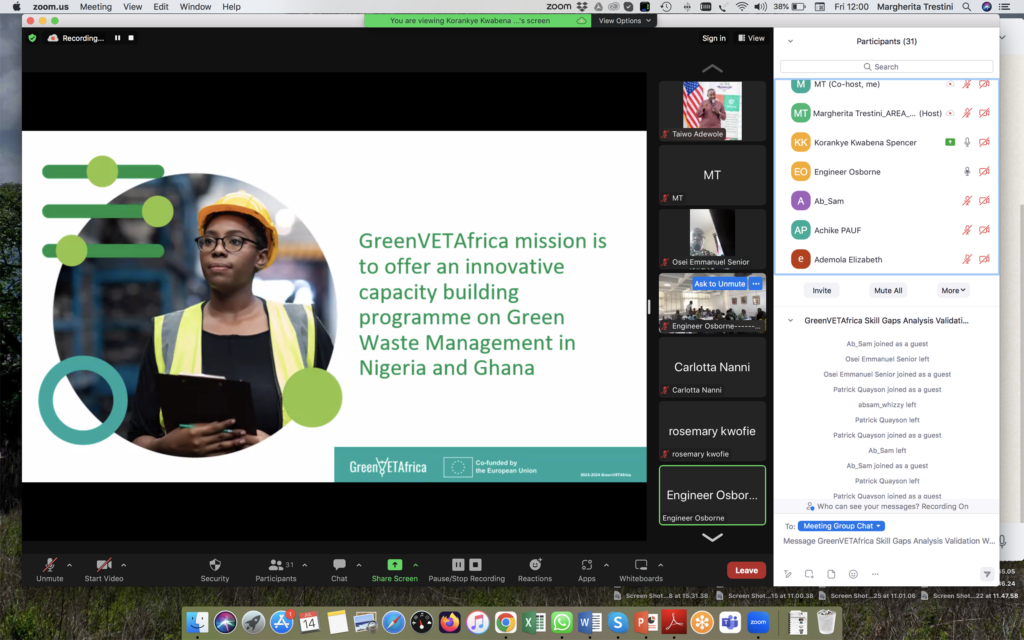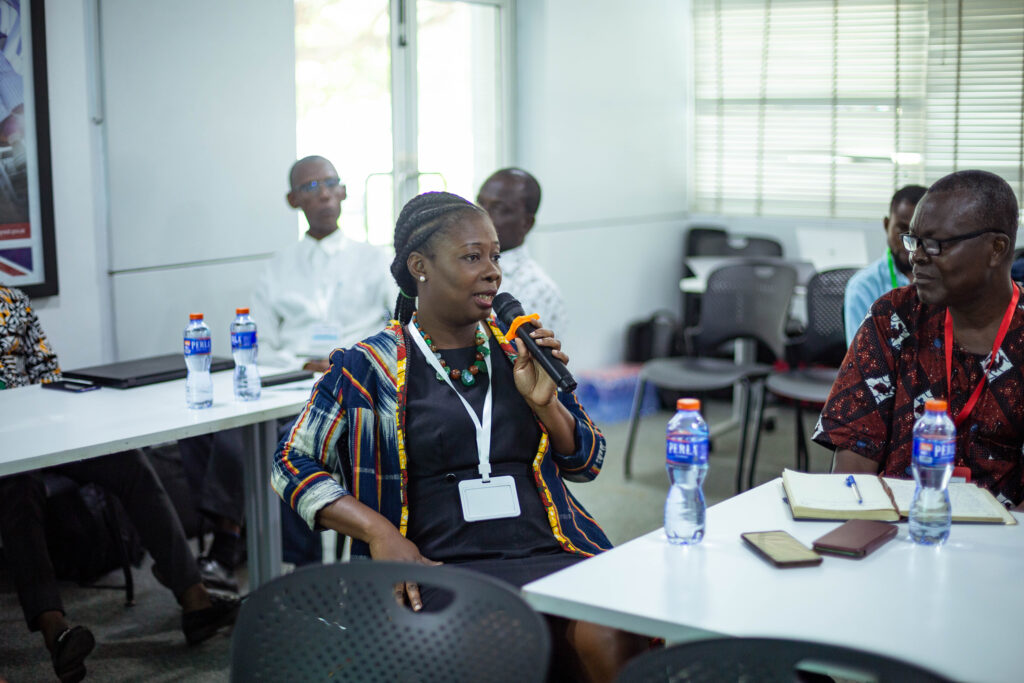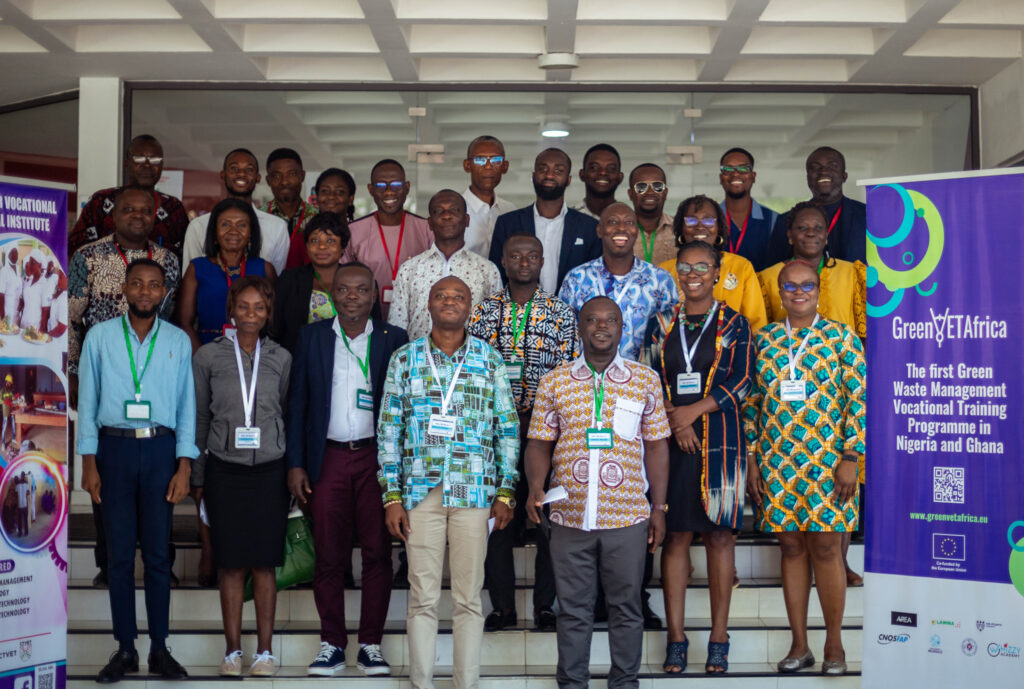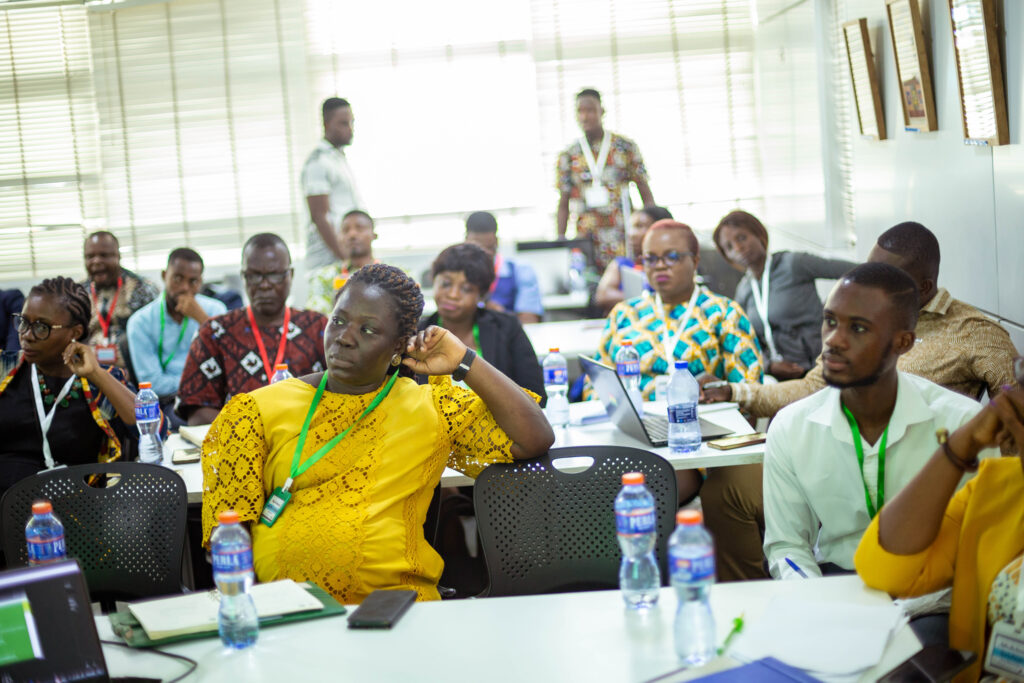Home » Validation Workshop For Skills Gap Analysis
Validation Workshop For Skills Gap Analysis
The Validation Workshop for the Skills Gap Analysis of the GreenVETAfrica project was successfully conducted on July 14th, 2023 at the British Council, Accra. Since it was a hybrid event, we had online participants joining from Ghana, Nigeria, Italy, Spain and other countries.

The main objective of the workshop was to bring together key stakeholders and experts from different sectors to validate the findings of the Skills Gap Analysis report and collaborate on potential solutions to address the identified gaps.

The event was organized by Whizzy Academy in partnership with the Ramseyer Vocational Technical Institute, with support from all partners of the GreenVETAfrica project. The workshop received a good response from both in-person and online participants.
Attendance
The event held at the British Council’s venue in Accra, Ghana, witnessed a total of 32 participants in attendance. In addition, 31 participants joined the workshop via Zoom, which made the event inclusive to a diverse audience from various geographical locations.
Key Objectives:
- To present and validate the findings of the Skills Gap Analysis report conducted by GreenVETAfrica.
- To foster discussions among stakeholders about potential solutions and strategies to bridge the identified skills gaps in the region.
- To receive feedback from participants to refine and enhance the final Skills Gap Analysis report.
Workshop Highlights:
- Anthony, from Ramseyer Vocational Institute, was designated as the event moderator. The proceedings began with an opening prayer led by Reverend Samuel Asamoa Ayeh-Hanson, the Principal of Ramseyer Vocational Technical Institute. Following the prayer, all participants, whether present in-person or online, were asked to briefly introduce themselves.
- Samuel Aboagye of Whizzy Academy, delivered a cordial welcome address, expressing appreciation to all attendees for their presence and highlighting the significance of tackling the skills gap challenges in Ghana and Nigeria.
- Adriano Mauro, Managing Director of AREA provided a concise overview of the GreenVETAfrica project. The participants were given the opportunity to pose questions and the partners present at the meeting provided thorough and comprehensive answers.
- Spencer T. Korankye, a Technical Expert at Whizzy Academy, delivered a summary of the Skills Gap Analysis report. The presentation comprehensively covered the methodology employed for the Gap Analysis, key findings, and areas for improvement.
- Following the presentation, attendees asked questions, which were addressed by partners who either joined remotely via Zoom or were physically present on site.
- The virtual participants who joined via Zoom had the opportunity to ask questions and contribute to the discussions. This hybrid approach ensured that everyone’s voice was heard, regardless of their physical location.

Outcomes and Recommendations:
Valuable insights and feedback were collected from the workshop participants, which will be integrated into the final version of the Skills Gap Analysis report. The most prominent feedback is listed below.
- The participants emphasized the need for trainees to have opportunities to specialize in specific technical skills within the Green Waste Management value chain. However, it was also noted that there should be a foundation of basic skills that are fundamental to the industry as a whole.
- It has been proposed that behavioral skills be included as a crucial skill requirement for young individuals seeking employment in the Green Waste Management industry.
- The participants suggested that trainees should be provided with ample practical industrial experience to acquire the necessary skills to succeed in the Green Waste Management sector.
- It was recommended that the Gap Analysis ought to serve as a means of connecting the formal and informal sectors within the Waste Management industry, given that 70% of our skilled workforce is drawn from the informal sector.
- The participants highlighted the significance of engaging Environmental Regulators in the process, as their involvement guarantees the sustainability of the practices being undertaken.
- Participants emphasized the importance of continuous monitoring and evaluation of the skills development initiatives to measure their effectiveness and make necessary adjustments over time.
During the session, the participants provided insightful recommendations that align with the key objectives of the GreenVETAfrica project and were already addressed in the Skills Gap Analysis. These recommendations include the integration of entrepreneurship to enhance the entrepreneurial abilities of trainees and the promotion of gender balance by increasing female participation, which is a crucial aspect of the project’s mission.
The event successfully fostered networking opportunities among participants from diverse backgrounds, leading to potential future collaborations in Ghana and Nigeria.
Conclusion
The Validation Workshop for the Skills Gap Analysis of the GreenVETAfrica project served as an essential platform to gather valuable insights, recommendations, and feedback from stakeholders. The hybrid nature of the event, with participants attending both in-person and via Zoom, added to its success by ensuring broader participation. As GreenVETAfrica moves forward, the outcomes of this workshop will play a crucial role in shaping the project’s strategies and interventions to bridge the skills gap and foster sustainable development in Ghana and Nigeria.
We extend our sincere appreciation to all the attendees, speakers, and partners for their valuable contributions to the workshop’s success.



